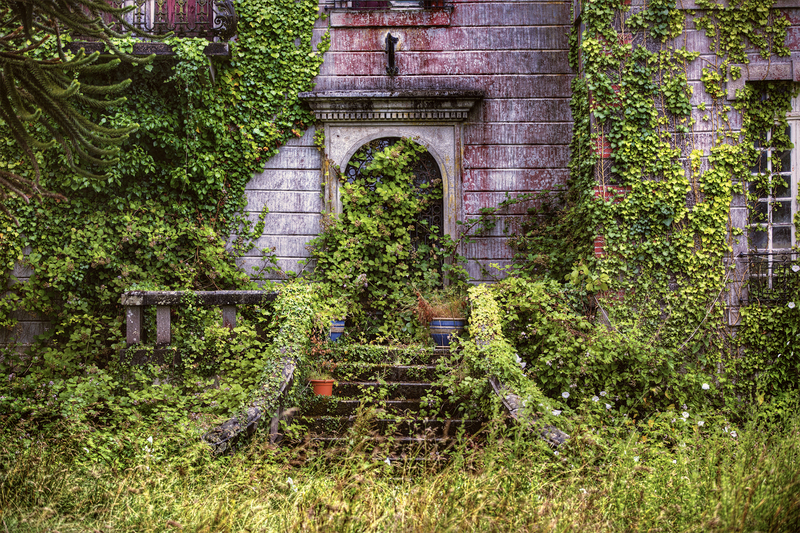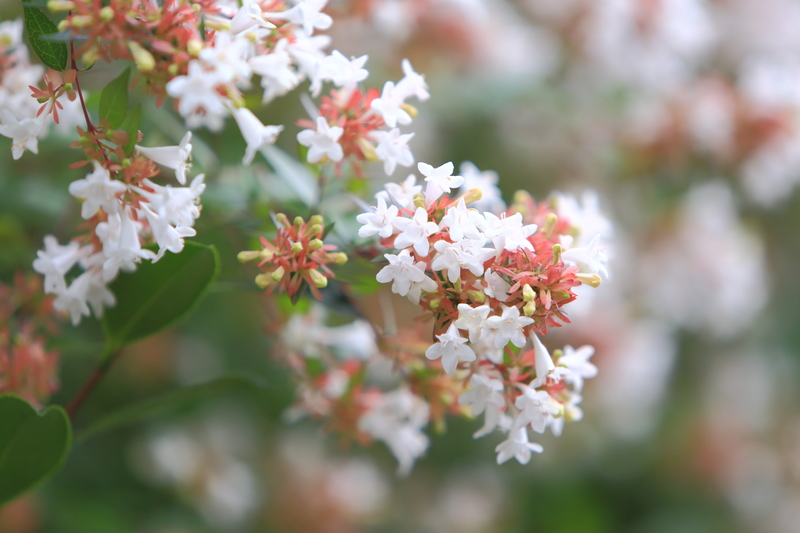Transforming Organic Waste into Black Gold for Gardens
Posted on 13/09/2025
Transforming Organic Waste into Black Gold for Gardens: A Comprehensive Guide
Organic waste doesn't have to pile up pointlessly in landfills. Instead, with a little knowledge and a bit of patience, you can transform organic waste into black gold for gardens, nurturing your plants and preserving the environment at the same time.

What Is "Black Gold" and Why Is It Important for Gardens?
Black gold is a common nickname for nutrient-rich compost created from decomposed organic material. What makes it so valuable is its unmatched ability to enrich garden soil, boost plant health, and foster sustainable gardening. Gardeners cherish compost for its capacity to:
- Increase soil fertility
- Enhance soil structure and water retention
- Encourage beneficial microorganisms
- Reduce reliance on chemical fertilizers
Transforming organic waste into garden gold is accessible to gardeners of all levels, whether you have a sprawling backyard or a small container garden on your balcony. Discover how to turn kitchen scraps, yard clippings, and other organic waste into valuable compost--and why this practice is the cornerstone of genuinely sustainable gardening.
Understanding Organic Waste: What Can Be Turned into Black Gold?
Organic waste comprises any biodegradable material derived from living organisms. Typical sources include:
- Fruit and vegetable peels
- Coffee grounds and tea bags
- Eggshells
- Yard waste such as leaves, grass clippings, and small branches
- Paper products like newspaper and cardboard (in moderation)
- Wood chips and sawdust (from untreated wood)
Things to Avoid: Not all waste belongs in your compost pile. Exclude:
- Meat, fish, and dairy (which attract pests and smell)
- Fats, oils, and greasy foods
- Treated wood or synthetic materials
- Diseased plants or invasive weeds
- Pet droppings (which may harbor pathogens)
Why Turn Organic Waste into Compost?
Composting is a simple process with profound benefits for both your garden and the environment. Here are key reasons to start turning kitchen waste into black gold today:
- Reduces landfill waste: Diverting organic material from landfills cuts greenhouse gas emissions and landfill overuse.
- Improves soil health: Compost adds essential nutrients and promotes beneficial soil organisms.
- Supports moisture retention: Compost-rich soil holds water better, reducing irrigation needs.
- Encourages sustainable gardening: Minimizes the need for synthetic fertilizers and pesticides.
Composting Methods: How to Transform Organic Waste into Black Gold
There's more than one way to convert organic materials into rich compost. The method you choose will depend on your available space, time, and preferences. Let's explore the most popular techniques:
Traditional Compost Pile or Bin
The classic backyard compost pile is an accessible and effective method for transforming organic materials into black gold for gardens.
- How it works: You layer green (nitrogen-rich) and brown (carbon-rich) materials, maintain moisture, and turn the pile regularly for aeration.
- Greens: Vegetable scraps, coffee grounds, grass clippings.
- Browns: Dry leaves, cardboard, wood chips.
- Turning: Use a garden fork to mix the pile weekly, introducing oxygen for aerobic decomposition.
- Timeframe: Depending on climate and maintenance, expect compost in 2 to 6 months.
Vermicomposting: The Power of Worms
Vermicomposting harnesses the efficiency of red wriggler worms to create high-quality compost from kitchen scraps.
- How it works: Worms digest organic matter, producing castings that are extremely rich in nutrients.
- Best for: Indoors or small spaces, and year-round composting.
- Feed worms: Fruit scraps, veggie ends, coffee grounds--avoid citrus and onions, which worms dislike.
- Harvest time: 2-4 months.
Bokashi Composting: A Fast Fermentation Method
Bokashi, a Japanese technique, uses specific microbes to ferment (not rot) all types of organic waste--including meats and dairy.
- How it works: Waste and bokashi bran are layered in a sealed bucket, fermenting in about 2 weeks.
- Advantages: Fermented waste is odorless and can be buried directly in the soil.
- Quick and suitable for: Small spaces, apartments, all food waste types.
Step-by-Step Guide to Composting Organic Waste
Ready to start transforming compostable waste into black gold for your garden? Follow these essential steps for composting success:
1. Choose the Right Compost Bin or Area
Pick a location with adequate drainage and partial sunlight. Compost bins come in various shapes and sizes--tumbler bins speed up decomposition, while open piles are budget-friendly.
2. Add Your Organic Waste in Layers
Alternate "green" and "brown" layers to balance nitrogen and carbon for optimal microbial activity.
- 1 part green (kitchen scraps, grass)
- 2-3 parts brown (leaves, paper, straw)
3. Maintain Moisture and Aerate
Compost should be damp, not soaking--think of a wrung-out sponge. Turn or stir your pile weekly to provide oxygen, preventing bad odors and accelerating breakdown.
4. Monitor Temperature and Decomposition
Active piles heat up--if you notice steam, good! Try for the interior to reach 130-160?F (54-71?C). Too cool? Add more greens and turn more frequently.
5. Harvest and Use Your Black Gold
Compost is ready when it's dark, crumbly, and smells earthy. Sift out larger pieces to return for further breakdown. Finished compost can be:
- Mixed into garden beds
- Used as top-dressing for lawns
- Blended into potting mix
- Used around trees and shrubs as mulch
Tips for Faster and Better Composting
Efficiently transforming organic waste into garden compost takes a bit of strategy. Try these expert tips:
- Chop or shred larger items to speed decomposition.
- Maintain proper balance of greens and browns for a healthy pile.
- Keep the pile moist, but avoid waterlogging.
- Aerate often--turn at least weekly or use a compost aerator tool.
- Monitor the smell: earthy is good; rotten means adjust greens/browns or improve airflow.
The Science: How Does Compost Enrich Garden Soil?
Compost is more than just decomposed waste--it's a powerhouse for soil health. Here's why gardeners call it black gold:
- Releases nutrients slowly: Plants absorb nutrients as they are broken down by soil microbes over time.
- Feeds soil life: Compost increases populations of worms, bacteria, and fungi critical for healthy soils.
- Improves soil texture: Lightens heavy clay, improves sandy soil's water retention, and reduces compaction.
- Buffers soil pH: Helps stabilize acidity and alkalinity for optimal plant growth.
- Suppresses disease: Encourages microbes that outcompete plant pathogens and reduce certain disease risks.
The Environmental Benefits of Composting Organic Waste
Composting organic waste into black gold for gardens isn't just about better tomatoes--it's a crucial tool for environmental stewardship:
- Reduces methane emissions: Organic waste in landfill decomposes anaerobically, producing methane, a potent greenhouse gas. Composting prevents this.
- Recycles nutrients: Keeps nutrients in the food loop, supporting sustainable agriculture.
- Conserves landfill space: Organic matter comprises up to 30% of municipal solid waste.
- Builds resilience: Healthy, organic-rich soils are less prone to erosion and drought.
Common Composting Problems (And Simple Solutions)
-
Odor issues?
- Likely too many "greens". Add more browns and increase turning.
-
Pile not breaking down?
- Pile too dry or lacks nitrogen. Moisten gently and add more greens.
-
Pests?
- No meat, dairy, or oils. Cover food scraps with browns and ensure secure bin lids.
Maximizing Your Black Gold: How to Use Compost in the Garden
Seize every benefit of your homemade compost:
- Before planting: Mix 2-4 inches of finished compost into garden soil to boost fertility.
- As mulch: Spread a layer around established plants to suppress weeds and feed soil.
- In potting mixes: Blend with soil for containers and raised beds.
- Compost tea: Steep a handful in water to create a liquid fertilizer.

The Future of Black Gold: From Backyard to Urban Agriculture
With urbanization increasing and landfills growing, transforming organic waste into black gold for gardens has never been more crucial.
- Community composting initiatives are reshaping how cities handle food and landscape waste.
- Schools, restaurants, and businesses are adopting small-scale composting for zero-waste goals.
- Even balcony gardeners can use indoor systems like vermicomposting or bokashi bins.
Conclusion: Turn Waste into Abundance--Start Composting Today!
Turning organic waste into black gold for gardens is one of the most simple, affordable, and impactful sustainable practices anyone can adopt. Whether you're an avid gardener or just want healthier plants, composting will elevate your soil health, reduce your waste footprint, and enrich your connection to the natural world.
Stop tossing out kitchen scraps--start building your own "black gold" today, and watch your garden thrive! Transforming organic waste into black gold isn't just gardening; it's creating abundance from what others throw away.
Latest Posts
Creating a Tranquil Zen Garden for Your Outdoor Sanctuary
Top 9 Rapidly Flourishing Hedges for Enhanced Privacy
Exploring the Art and Beauty of Vertical Gardening

